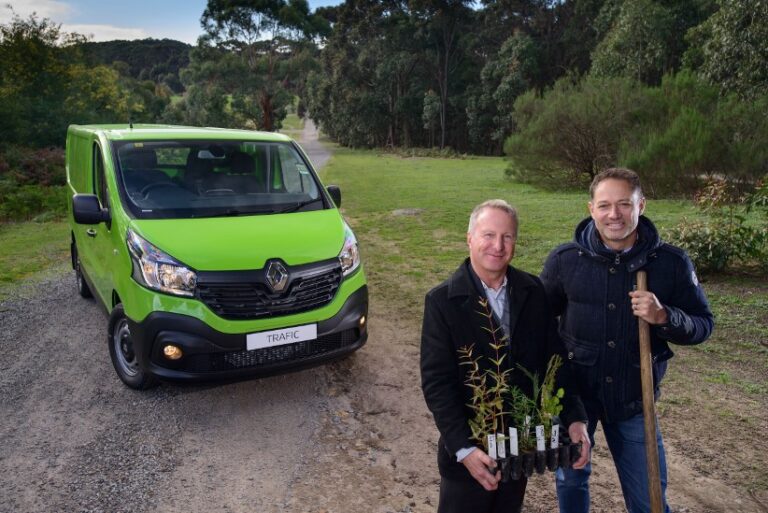Greenfleet CEO Wayne Wescott made a presentation at the recent AfMA conference on how to green your fleet. Greenfleet doesn’t have its own fleet; nor is it a fleet management organisation. It’s a not-for-profit that puts donations from individuals and corporates into planting trees to reforest cleared lands in Australia and New Zealand.
Wescott said the 25-year-old charity is working with a lot of fleets and fleet management businesses to help them understand and offset their emissions. Big names include Telstra, Smartgroup, Toyota Fleet Management, McMillan Shakespeare, GM Holden, Fleetcor, Europcar, Kings Transport, Kent Removals, Bendigo & Adelaide Bank and Taronga Zoo.
“Our focus is not to count how bad things are,” said Wescott. “Our focus is to take action.”
He said the first thing for any organisation wanting to offset their emissions is to understand their emissions. This can be done using online calculators that will give average emissions based on vehicle models, kilometres traveled and fuel type.
“It’s very important we understand the emissions of your fleet,” said Wescott. Greenfleet’s website says a large car produces an average five tonnes of CO2 a year, and that a donation of $75 to Greenfleet would cover the cost of planting enough native trees to offset those emissions.
A four-wheel-drive vehicle (the most popular new car sellers in Australia) produces an average of 6.5 tonnes of CO2 a year, which can be offset with a $97.50 donation. Greenfleet will plant enough native trees to capture 4.3 tonnes of CO2, the average emissions produced by a medium-sized car in one year.
It also has scheduled donations for EVs and hybrids — $25.50 to cover the average 1.7 tonnes of CO2 emissions produced by an electric vehicle charging from non-renewable energy sources in one year, and $45 to offset the three tonnes of CO2 produced from a hybrid vehicle’s tailpipe and non-renewable sourced charging annually.
Greenfleet is an Australian Tax Office registered deductible gift recipient, meaning that donations and offsets of $2 or more are tax deductible in Australia.
One of the projects Greenfleet is involved with includes revegetating an old introduced 2,400 hectare pine forest with native trees to expand a koala habitat in the Noosa region of Queensland.
Wescott said organisations they work with appreciate the business value of taking climate action.
“Shareholder pressure is very significant,” he said, adding that one business he works with told him that one-third of their AGM had been concerned with climate change. “There’s no doubt shareholders are much more focussed than ever before on climate and this will continue to grow.”
Another benefit to business of having climate friendly action was that it helped to attract and retain staff, particularly the younger cohort. Supply chain policies are also increasingly including climate neutral sources, and more and more customers are considering climate mindful choices.
— Caroline Falls is a freelance writer. She has been contributing to Fleet Auto News since 2015. She can be contacted at carolinefalls@gmail.com.






